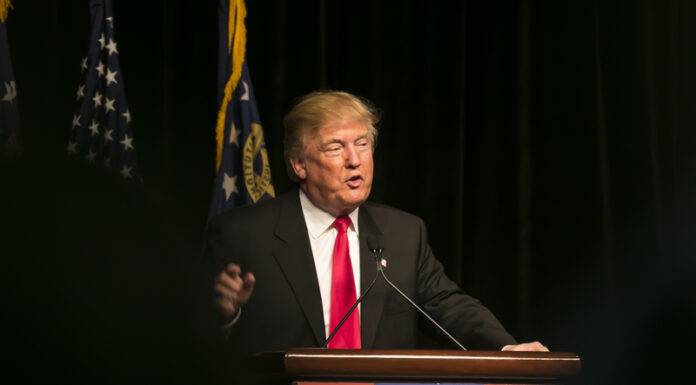In a dramatic turn of events Wednesday night, December 18, President-elect Donald Trump and his new pal, billionaire Elon Musk, joined forces to effectively kill a bipartisan government funding package, pushing the nation closer to a shutdown just days before Christmas.
House Majority Leader Steve Scalise (R-LA) confirmed the collapse of the carefully negotiated deal, stating, “There’s no new agreement right now,” while noting they were “obviously, looking at a number of options.”
The legislative chaos intensified when Trump released a series of statements criticizing what he called “foolish and inept” Republicans for considering the bill, which he claimed contained “all of the Democrat bells and whistles that will be so destructive to our Country.”
House Speaker Mike Johnson, who had spent weeks crafting the bipartisan package, was caught between Trump’s demands and the pressing need to keep the government funded beyond Friday’s midnight deadline. Johnson remained secluded in his office for hours after support for his bill collapsed, with Vice President-elect JD Vance seen arriving for consultations.
The 1,500-page spending bill, released Tuesday night, included approximately $100 billion in disaster relief aid for Hurricane Helene and Hurricane Milton victims, billions in farm subsidies, and funding for rebuilding the Francis Scott Key Bridge in Baltimore, Maryland. The bridge was destroyed earlier this year when a ship struck one of its support columns.
Musk, who serves alongside entrepreneur Vivek Ramaswamy on Trump’s new Department of Government Efficiency, celebrated the bill’s defeat on his social media platform X, declaring, “Your elected representatives have heard you, and now the terrible bill is dead. The voice of the people has triumphed!”
The White House issued a strong response, emphasizing that a government shutdown would harm families gathering for the holidays and disrupt essential services relied upon by Americans, including veterans and Social Security recipients. The administration urged Republicans to honor their bipartisan agreement, asserting that a deal should be upheld.
Financial markets reacted negatively to the political uncertainty, with the Dow Jones dropping over 1,100 points following the Federal Reserve’s interest rate announcement. The sell-off accelerated in after-hours trading.
House Democratic Minority Leader Hakeem Jeffries (D-NY) signaled his party would oppose a clean stopgap bill, posting on X: “You break the bipartisan agreement, you own the consequences that follow.”
Trump and Vance issued a joint statement supporting the disaster relief and farm subsidies but insisted Republicans could deliver this spending in 2025 when they control both houses of Congress. They called for “a temporary funding bill WITHOUT DEMOCRAT GIVEAWAYS combined with an increase in the debt ceiling,” declaring that “Anything else is a betrayal of our country.”
The Biden administration denounced the looming government shutdown threat, urging Republicans to honor a bipartisan agreement. “Republicans need to stop playing politics with this bipartisan agreement, or they will hurt hardworking Americans and create instability across the country,” said White House press secretary Karine Jean-Pierre.
Grover Norquist, president of Americans for Tax Reform and a veteran of budget disputes, expressed concern about the lack of a cohesive strategy to resolve the impasse. “There’s got to be a second part of the strategy,” Norquist said.
Norquist, known for his advocacy to shrink government, acknowledged Musk’s ability to draw public attention to such issues. However, he questioned the tech mogul’s qualifications for navigating congressional budget negotiations. “He doesn’t know politics like he knows physics,” Norquist said.
Not everyone shared Norquist’s skepticism. Some lawmakers welcomed Musk’s involvement in the debate.
“In five years in Congress, I’ve been awaiting a fundamental change in the dynamic,” tweeted Rep. Dan Bishop, R-N.C. “It has arrived.”
Musk launched into a scathing critique of the spending measure shortly after its release Tuesday evening, continuing his criticism into Wednesday.
Musk stated that any member of the House or Senate who supports the spending bill should face electoral consequences in two years, describing it as one of the worst bills ever written.
At times, Musk amplified inaccurate claims, including one suggesting the legislation allocated $3 billion for a new football stadium in Washington. The measure would transfer federal land ownership to the city, facilitating potential future development.
Democratic Rep. Jamie Raskin of Maryland wrapped it up when he said that this is the problem with “an oligarchy — a handful of wealthy people run everything and everyone is supposed to live in fear of them.”








